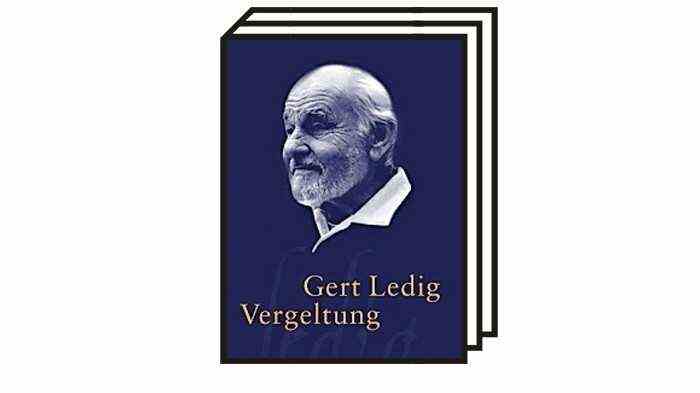In the fifties, Gert Ledig published three novels in quick succession – 1955 “Die Stalinorgel”, 1956 “Vergeltung” and 1957 “Faustrecht” – with which he maneuvered himself into the first row of German post-war literature. He was born in Leipzig in 1921 and grew up in Vienna. In 1939, at the age of 18 and having just completed his training as an electrical engineer, he enlisted in the Wehrmacht. He fought in the Battle of Leningrad, was transferred to a punishment company for “inflammatory speech” and was sent back to Germany seriously wounded. As a shipbuilding engineer, he was responsible for subcontracting to the navy in Bavaria and during this time he experienced several air raids, including on Munich.
These exceptional experiences, which were not unusual at the time, became the subject of his novels, which earned him a lot of praise and just as much criticism. In cool, succinct sentences, Ledig tells of the violence of the war from dozens of perspectives, in the “Stalin Organ” from the Eastern Front, in “Retribution” from the air raid on a German city. “Motors suddenly roared in the air. A rain of arrows of magnesium rods hissed into the asphalt. In the next second they burst apart. Where there was asphalt, flames crackled. The handcart was overturned by the air wave. The drawbar flew into the sky “A child unrolled itself from a blanket. The mother on the wall did not scream. She had no time for it. There was no playground for children here. A woman stood next to the mother and burned like a torch. She screamed. The mother looked at her helplessly.” on, then it shrank. A wave of explosion burst along the cemetery wall, and at that moment the road burned too. The asphalt, the stones, the air. That happened at the cemetery. “
Because of a war injury he was never able to read from his works
“The Stalin Organ” was praised by Siegfried Lenz, and the critics immediately wanted to have identified one of the best books that “was ever written about the war”. Translations into more than a dozen languages followed. The journalist and critic Volker Hage wrote that the novel was “unprecedented in German post-war literature”. Only in spite of these successes did Ledig not find real access to the very same post-war literature. Because of a war injury he was never able to read from his works himself. The lyric poet Günter Eich represented him at a performance in front of Group 47. And the criticism was not so benevolent.
Already in the second novel “Retribution”, from which the above quotation comes, he went too far in the opinion of many, “macabre horror painting” was still one of the more polite judgments. Today one cannot help but recognize in this rejection the same mechanism of repression that often still prevents the coming to terms with the crimes and horrors of war.
Single soon retired, was briefly interested in communism and then, disappointed by the GDR, worked in the West as a radio journalist and technology writer. At the end of the nineties, Volker Hage rediscovered the forgotten single, which was followed by reprints and much more benevolent reviews. There was no longer anything new. Unmarried died in 1999. In 2019 a draft was published from the estate, “The Korčula Cannons”, in which the power of the early novels can only be guessed at.
Nobody sparked the madness alone, and yet all of them find themselves individually in it
It was their concise, haunting and modest style that was the basis of Ledig’s rise and fall. What he was accused of as cynicism, as a horror show, is not showmanship. Single makes simple statements, he shows pictures that work without much needing to be said. Burning people don’t have to be explained.
Right-wing extremists now regularly try to reinterpret the bombing of German cities by the Allies into a victim myth. One would like to give them “retribution”, because any nationalism is alien to the novel. It was not just about depicting violence and death, about heroes and victims. You didn’t have to tell about it anymore. It wasn’t about “the Germans” either. It was about the people in the firestorms, regardless of whether they were women, children, soldiers or pastors, black or white, American or German.
The story in “Retribution” takes up all of its perspectives, and as everyone has their say, the fronts become blurred, because none of them sparked the madness alone, and yet they all find themselves individually in it. The novel tells of people who are being destroyed. Whether in an air strike or in some other way is not decisive.
“Vergeltung” is still available in an annotated edition from Suhrkamp, ”Die Stalinorgel” and “Faustrecht” are currently only available as antiquarian books. The English, French and Spanish translations are available. Gert Ledig would have turned 100 on November 4th.

